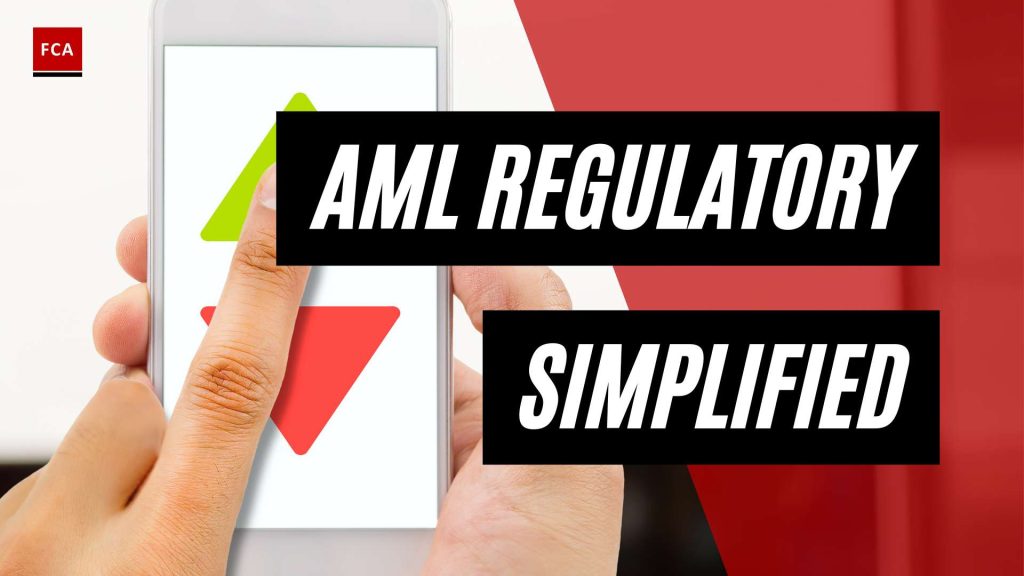AML Compliance for Non-Financial Businesses
When it comes to combating money laundering and ensuring the integrity of financial systems, anti-money laundering (AML) compliance is not limited to financial institutions alone. Non-financial businesses also play a crucial role in preventing money laundering activities. In this section, we will explore the importance of AML compliance for non-financial businesses and the role they have in maintaining financial security.
Introduction to AML Compliance
Money laundering is the most common form of financial crime worldwide, and it is taken very seriously by both the federal government and financial regulators. Money laundering involves disguising the origins of illicit funds, making them appear legitimate. It is often associated with other criminal activities, such as funding terrorism and financial fraud (Unit21).
AML compliance refers to the set of regulations, policies, and procedures implemented by businesses to prevent and detect money laundering activities. These regulations aim to ensure transparency in financial transactions, identify and report suspicious activities, and establish robust internal controls to mitigate the risk of money laundering.
Importance of AML Compliance for Non-Financial Businesses
Non-financial businesses, such as real estate agencies, lawyers, accountants, and dealers of high-value goods, can unwittingly become conduits for money laundering if proper measures are not in place. By complying with AML regulations, non-financial businesses contribute to the overall efforts in fighting against money laundering and maintaining financial integrity.
Failure to comply with AML regulations can have serious consequences for non-financial businesses. Financial organizations that violate AML regulations can face civil and criminal penalties, ranging from fines to jail time. In extreme cases, businesses can be sanctioned, preventing them from conducting any further business activities. Even unintentional violations of specific regulations can still result in significant penalties (Unit21).
Compliance with AML regulations not only helps businesses avoid legal consequences but also protects their reputation and credibility. Non-compliance can lead to reputational damage, loss of business opportunities, and a decline in customer trust. By prioritizing AML compliance, non-financial businesses demonstrate their commitment to maintaining the highest standards of ethics and integrity.
To ensure AML compliance, non-financial businesses should conduct thorough risk assessments, implement robust AML policies and procedures, provide regular staff training on identifying and reporting suspicious activities, and establish ongoing monitoring and reporting mechanisms. By collaborating with regulatory authorities and other stakeholders, non-financial businesses can contribute to the effectiveness of AML compliance efforts as a collective whole.
In the following sections, we will delve deeper into the regulatory framework for AML compliance, the consequences of non-compliance, and the various measures non-financial businesses can take to enhance their AML compliance practices.
Regulatory Framework for AML Compliance
To ensure the integrity of financial systems and prevent illicit activities such as money laundering, non-financial businesses are also required to comply with anti-money laundering (AML) regulations. Understanding the regulatory framework is crucial for non-financial businesses to meet their compliance obligations effectively.
Overview of AML Regulations for Non-Financial Businesses
Money laundering is a pervasive form of financial crime, and it is taken very seriously by governments and regulatory bodies worldwide. Non-financial businesses, such as real estate agencies, casinos, and high-value goods dealers, are subject to AML regulations to prevent money laundering and other illicit activities. By implementing strong AML measures, these businesses contribute to maintaining the integrity of the financial system.
The specific AML requirements for non-financial businesses may vary by jurisdiction, but they generally involve conducting customer due diligence, monitoring transactions for suspicious activity, and reporting any suspicious transactions to the appropriate authorities. Non-compliance with AML regulations can result in significant penalties, fines, reputational damage, and even legal consequences.
Key AML Regulations in the United States
In the United States, the Bank Secrecy Act (BSA) is the cornerstone of AML regulations. The BSA imposes compliance obligations on financial institutions and requires them to establish robust AML programs. Non-financial businesses that fall under the BSA’s purview, such as money services businesses, casinos, and dealers in precious metals, must also adhere to these regulations.
Violations of the BSA can result in severe penalties, including monetary fines and imprisonment. The consequences of non-compliance can also extend to reputational damage and loss of business opportunities. Therefore, it is crucial for non-financial businesses to implement effective AML controls, policies, and procedures to meet their compliance obligations and mitigate the risks associated with money laundering and other financial crimes.
The EU’s 5th Anti-Money Laundering Directive
In the European Union, the EU’s 5th Anti-Money Laundering Directive (5AMLD) introduced new regulations that expanded the scope of AML requirements for non-financial businesses. The directive aimed to increase transparency in financial transactions and combat money laundering and terrorist financing activities.
Under the 5AMLD, non-financial businesses and professions, including real estate agents, art dealers, and virtual currency exchange platforms, are now obligated to adhere to AML and counter-terrorism financing laws. These businesses must implement robust AML controls, conduct customer due diligence, and report suspicious transactions to relevant authorities.
By complying with the 5AMLD, non-financial businesses contribute to the overall effort of preventing money laundering and protecting the integrity of the financial system within the European Union.
Understanding the regulatory framework and specific AML regulations applicable to non-financial businesses is vital for establishing effective AML compliance programs. By adhering to these regulations, businesses can mitigate the risks of money laundering, protect their reputation, and contribute to the global fight against financial crimes.
For more information on AML compliance for non-financial businesses, including risk assessments, AML policies, staff training, and reporting requirements, check out our related articles on compliance for non-financial businesses, AML training for non-financial businesses, AML policies for non-financial businesses, AML procedures for non-financial businesses, AML controls for non-financial businesses, AML reporting for non-financial businesses, and AML audits for non-financial businesses.
Consequences of Non-Compliance
Ensuring compliance with anti-money laundering (AML) regulations is of utmost importance for non-financial businesses. Failure to comply with these regulations can lead to significant consequences, including penalties and fines, as well as reputational damage and loss of business opportunities.
Penalties and Fines for AML Non-Compliance
Non-compliance with AML regulations can result in serious penalties and fines. Financial organizations that violate AML regulations can face civil and criminal penalties, ranging from fines to jail time. In extreme cases, they can even be sanctioned, preventing them from doing business. It’s important to note that violations of specific regulations can still be a serious offense, even without malicious intent (Unit21).
The Bank Secrecy Act (BSA) in the United States is one of the most significant laws in the fight against money laundering. It imposes compliance obligations on financial institutions. Violations of the BSA can result in criminal penalties, including fines and imprisonment. The USA PATRIOT Act also requires banks and financial institutions in the United States to understand and comply with AML obligations. Violations of the act can result in fines of up to $1 million or double the value of the transaction (Unit21).
The exact penalties and fines for AML non-compliance may vary depending on the jurisdiction and specific regulations. It is essential for non-financial businesses to understand and adhere to the AML requirements applicable to their industry and location. By implementing robust AML policies, procedures, and controls, businesses can minimize the risk of non-compliance and the associated penalties.
Reputational Damage and Loss of Business Opportunities
In addition to monetary penalties, non-compliance with AML regulations can result in reputational damage and loss of business opportunities. AML non-compliance can lead to negative publicity, eroding customer trust and confidence in the business. Customers may be hesitant to engage in transactions with a business that has a tarnished reputation for not adhering to AML standards.
Furthermore, non-compliance can lead to the loss of business opportunities. Financial institutions and other businesses may be reluctant to establish relationships or partnerships with non-compliant entities. Compliance is often a prerequisite for conducting business with reputable organizations, and failure to meet AML requirements can hinder potential collaborations and growth opportunities.
To mitigate the risk of reputational damage and loss of business opportunities, non-financial businesses must prioritize AML compliance. By implementing robust AML policies and procedures, conducting regular staff training, and actively monitoring and reporting suspicious activities, businesses can demonstrate their commitment to AML compliance and safeguard their reputation.
In summary, the consequences of non-compliance with AML regulations for non-financial businesses can be severe. Apart from penalties and fines imposed by regulatory authorities, non-compliance can lead to reputational damage and loss of business opportunities. It is crucial for businesses to prioritize AML compliance, implement appropriate measures, and stay vigilant in their efforts to combat money laundering and terrorist financing.
Enhancing AML Compliance for Non-Financial Businesses
To ensure compliance with anti-money laundering (AML) regulations, non-financial businesses must take proactive measures to enhance their AML compliance efforts. By implementing robust practices and procedures, businesses can mitigate risks, maintain trust, and demonstrate a commitment to ethical business practices. Here are some key steps to enhance AML compliance for non-financial businesses:
Conducting Risk Assessments
Conducting thorough risk assessments is an essential first step in AML compliance. By identifying and understanding the specific money laundering risks associated with their operations, non-financial businesses can tailor their compliance measures accordingly. Risk assessments help businesses determine the appropriate level of due diligence required for customers, transactions, and business relationships. Regularly reviewing and updating risk assessments allows businesses to adapt to changing risks and regulatory requirements.
Implementing Robust AML Policies and Procedures
Non-financial businesses should develop and implement robust AML policies and procedures tailored to their specific risks and compliance obligations. These policies and procedures should address customer due diligence, recordkeeping, risk management, and reporting of suspicious activities. Clear guidelines should be established for identifying and verifying customers, monitoring transactions, and responding to red flags. Implementing effective AML controls helps businesses mitigate the risk of being used for money laundering or terrorist financing purposes.
It is crucial for non-financial businesses to have comprehensive policies and procedures in place to comply with AML requirements. This includes having systems and controls to detect and prevent suspicious activities, such as the avoidance of recordkeeping and reporting requirements, inadequate or suspicious customer information, and unexplained changes in transaction behaviors. Implementing these policies and procedures helps businesses demonstrate their commitment to AML compliance and mitigates the risk of non-compliance.
Providing Regular Staff Training
Ongoing training is vital to ensure that employees understand their roles and responsibilities in AML compliance. Non-financial businesses should provide regular training sessions to employees, covering topics such as AML regulations, red flag indicators, customer due diligence, and reporting obligations. Training should be tailored to different departments and job roles, ensuring that employees have the necessary knowledge and skills to identify and report suspicious activities. By investing in staff training, businesses can foster a culture of compliance and empower employees to actively contribute to AML efforts.
Ongoing Monitoring and Reporting of Suspicious Activities
Non-financial businesses should establish robust systems for ongoing monitoring of customer transactions and activities. This includes implementing automated tools and manual reviews to detect unusual patterns or suspicious behavior. Regularly reviewing and analyzing transaction data enables businesses to identify red flags and promptly report suspicious activities to the relevant authorities. Having effective reporting mechanisms in place ensures compliance with AML reporting requirements and aids in the fight against money laundering and terrorist financing.
By focusing on these key areas, non-financial businesses can enhance their AML compliance efforts and mitigate the risks associated with money laundering and terrorist financing. Collaboration with regulatory authorities and staying updated on AML regulations are also crucial for maintaining compliance. For more information on AML compliance for non-financial businesses, visit our article on compliance for non-financial businesses.
Collaboration and Oversight for Effective AML Compliance
To ensure effective compliance with anti-money laundering (AML) regulations, collaboration between public and private sectors is crucial. Non-financial businesses must work closely with regulatory authorities, law enforcement agencies, and other stakeholders to create a robust AML framework. This collaborative approach strengthens the fight against money laundering and terrorist financing, safeguarding the financial system and protecting society from criminal threats.
Importance of Collaboration between Public and Private Sectors
Collaboration between public and private sectors is vital for combating money laundering and terrorist financing. Non-financial businesses play a significant role in the detection and prevention of illicit financial activities. By working together, they can share information, expertise, and resources to enhance the effectiveness of AML efforts.
Key benefits of collaboration include:
-
Information Sharing: Public and private sectors can exchange valuable information regarding emerging money laundering trends, suspicious transactions, and typologies. This sharing of information helps identify potential risks and enables a proactive response to evolving threats.
-
Coordinated Investigations: Collaboration allows for coordinated investigations between regulatory authorities, law enforcement agencies, and non-financial businesses. By pooling their expertise and resources, they can conduct more effective investigations and disrupt illicit financial networks.
-
Enhanced AML Framework: Collaboration facilitates the development of comprehensive AML frameworks that reflect the evolving nature of money laundering and terrorist financing. It enables the creation of regulations, guidelines, and best practices that are practical, effective, and aligned with industry realities.
-
Training and Education: Public-private collaboration promotes the sharing of knowledge and best practices through training programs and educational initiatives. This ensures that non-financial businesses have the necessary skills and awareness to implement robust AML measures.
To establish effective collaboration, non-financial businesses should actively engage with regulatory authorities, participate in public-private forums, and contribute to the ongoing dialogue on AML compliance. By working together, they can strengthen the collective response to money laundering and terrorist financing.
Role of Regulatory Authorities in Monitoring and Enforcement
Regulatory authorities play a crucial role in monitoring and enforcing compliance with AML regulations by non-financial businesses. They have the responsibility to ensure effective oversight mechanisms are in place to deter and detect illicit financial activities.
Key aspects of their role include:
-
Conducting Risk Assessments: Regulatory authorities assess the money laundering and terrorist financing risks associated with non-financial businesses. These risk assessments help identify vulnerabilities and inform the development of appropriate regulatory frameworks.
-
Guidance and Training: Regulatory authorities provide guidance, training, and support to non-financial businesses to help them understand and implement AML regulations effectively. This includes clarifying regulatory requirements, disseminating best practices, and offering resources for compliance.
-
Penalties for Non-Compliance: In cases of non-compliance, regulatory authorities have the power to impose penalties and fines on non-financial businesses. These penalties serve as deterrents and reinforce the importance of adhering to AML regulations.
-
Enforcement Actions: Regulatory authorities conduct investigations and enforcement actions to ensure compliance with AML regulations. They have the authority to conduct audits, inspections, and examinations of non-financial businesses to assess their compliance levels and take appropriate actions when necessary.
By actively monitoring and enforcing compliance, regulatory authorities contribute to the overall integrity of the financial system and mitigate the risks associated with money laundering and terrorist financing.
In conclusion, collaboration between public and private sectors and the active role of regulatory authorities are essential components of effective AML compliance for non-financial businesses. This collaborative approach enhances information sharing, strengthens investigations, and promotes the development of robust AML frameworks. By working together, regulatory authorities and non-financial businesses can create a formidable defense against money laundering and terrorist financing.
Red Flags for AML Non-Compliance
When it comes to AML compliance, recognizing red flags for potential illicit activities is crucial for non-financial businesses. Identifying these warning signs allows businesses to take appropriate measures to mitigate the risk of money laundering and protect themselves from legal and reputational consequences. Here are three common red flags that indicate potential AML non-compliance.
Inadequate or Suspicious Customer Information
One red flag is when customers provide inadequate or suspicious details during the due diligence process. This can include incomplete or inconsistent information, reluctance to provide necessary identification documents, or suspicious behavior that raises doubts about the legitimacy of the business relationship. Non-financial businesses must exercise vigilance when examining customer information and be alert to any discrepancies or indications of potential illicit activities. For further guidance on AML red flags, source.
Avoidance of Recordkeeping and Reporting Requirements
Non-financial businesses must adhere to recordkeeping and reporting requirements mandated by AML regulations. Customers who intentionally avoid these requirements may be engaging in activities to evade detection of illicit transactions. Examples include refusing to provide necessary transaction details, attempting to prevent the recording of information, or engaging in suspicious practices aimed at circumventing reporting obligations. Non-financial businesses should be aware of these avoidance tactics and promptly report any suspicious activities to the appropriate authorities. For more information on AML reporting requirements, visit source.
Unexplained Changes in Transaction Behaviors
Abrupt and unexplained alterations in a customer’s transaction patterns can raise suspicion of illegal activities. Non-financial businesses should pay attention to unusual usage of significant amounts of cash, especially when it deviates from standard business practices. Changes in transaction behaviors, such as sudden increases in cash deposits or withdrawals, inconsistent frequency or volume of transactions, or unexplained shifts in transaction locations, may indicate potential money laundering or other illicit activities. Vigilant monitoring and reporting of such anomalies are essential to ensure AML compliance and mitigate risks. Learn more about AML controls and reporting for non-financial businesses at source.
By being aware of these red flags and implementing robust AML policies and procedures, non-financial businesses can enhance their compliance efforts and help protect themselves and the broader financial system from the risks associated with money laundering. Regular staff training and ongoing monitoring of suspicious activities are also critical to maintaining effective AML compliance. By collaborating with regulatory authorities and actively participating in the fight against money laundering, non-financial businesses can contribute to a safer and more transparent financial environment.
Exploring Straighteners for Curly Hair
Ceramic Straighteners
Tourmaline Straighteners
Titanium Straighteners
Content Brief:
- The target topic for the article is ‘Haircare > Curly Hair > Straighteners’.
- The target audience for the article is ‘Women with curly hair’.
- The target keyword for the article is ‘best straighteners for curly hair’.
- The perspective for the article is ‘Third person (he, she, it, they)’.
- The tone of voice for the article is ‘Neutral (clear, knowledgeable and confident)’.
- The article should be written in language ‘English (US)’.
- The reading level of the audience is ‘US Grade 8’.
- The article should include tables to display numerical data.
- The article must include internal links.
Directions:
- Respond in valid markdown, sparingly using tables and lists where relevant.
- Headers are denoted by
##and###, make sure to include all headers in the output. - If available, you should use the extra context for up to date information about the topic.
- You should cite information, facts and figures from the extra context.
- You should include inline markdown links for citations from the extra context.
- You should only write in the language specified, do not add any unnecessary English words.
- You should use synonyms for keywords to avoid repetition.
- You should include a table if you need to represent numerical data.
- You should add internal links within the text.
- You should add internal links as inline markdown links.
- Do not add any extra headers or sections.
- Do not use transition words or phrases.
- Do not include a conclusion.
Internal links:
- compliance for non-financial businesses
- aml compliance for non-financial businesses
- non-financial businesses and aml requirements
- aml training for non-financial businesses
- aml policies for non-financial businesses
- aml procedures for non-financial businesses
- aml controls for non-financial businesses
- aml reporting for non-financial businesses
- aml audits for non-financial businesses
Extra Context:
“`
- Money laundering is the most common form of financial crime throughout the world and within the United States. It is taken very seriously by the Federal Government and financial regulators, along with funding terrorism and financial fraud. (Unit21)
- Financial organizations that violate AML regulations can face civil and criminal penalties, ranging from fines to jail time. In extreme cases, they can be sanctioned, preventing them from doing business. Violating specific regulations can still be a serious offense, even without malicious intent. (Unit21)
- AML fines for non-compliance can include monetary fines, loss of credit rating or damaged reputation, temporary or permanent closure of business, and other legal consequences. AML compliance is crucial to avoid these penalties. (Unit21)
- The Bank Secrecy Act (BSA) in the United States is the most significant law in fighting money laundering and imposes compliance obligations on financial institutions. Violations of the BSA can result in criminal penalties including fines and imprisonment. (Unit21)
- The USA PATRIOT Act requires banks and financial institutions in the United States to understand and comply with AML obligations. Violations of the act can result in fines of up to $1 million or double the value of the transaction. (Unit21)
- Non-compliance with anti-money laundering regulations for non-financial businesses can result in severe consequences, such as regulatory fines, reputational damage, loss of business opportunities, criminal liability for individuals, and even potential closure of the business. (Financial Crime Academy)
- The consequences for non-compliance with anti-money laundering regulations can extend beyond financial penalties and may include significant reputational harm that can negatively impact the business’s relationships with customers, business partners, and other stakeholders. (Financial Crime Academy)
- Effective compliance with anti-money laundering regulations is crucial for non-financial businesses to mitigate risks, maintain trust and credibility, safeguard their reputation, and demonstrate a commitment to ethical business practices and regulatory compliance. (Financial Crime Academy)
- Some key steps that non-financial businesses can take to enhance compliance with anti-money laundering regulations include conducting risk assessments, implementing robust AML and CTF policies and procedures, providing regular training to staff, and ensuring ongoing monitoring and reporting of suspicious activities. (Financial Crime Academy)
- The use of intermediaries in transactions can introduce opacity and preserve anonymity, potentially aiding money launderers in delaying, obscuring, or avoiding detection. This tactic may involve unnecessary use of intermediaries, which should raise concerns and prompt additional inquiries. (FIU Belize)
- Money launderers aim to introduce multiple layers into their transactions, passing money through various sources and different persons or entities. Even apparently legitimate customer accounts can be used to launder money unknowingly, as a favor, or under pressure. (FIU Belize)








